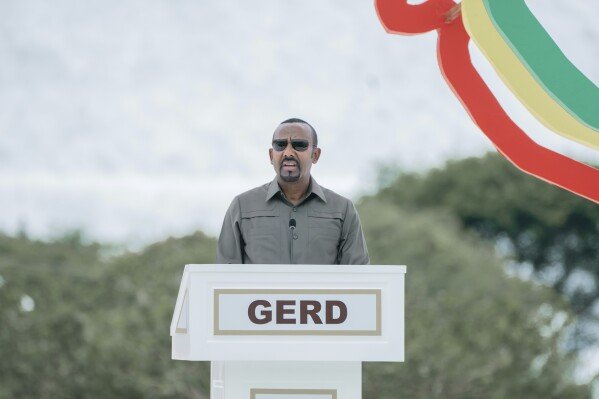Russia and Ethiopia have taken a decisive step toward advancing nuclear cooperation, formalizing plans to develop and construct a nuclear power plant in the East African nation.
The deal, announced by Russian state-owned nuclear corporation Rosatom, was signed during a nuclear energy forum by Rosatom’s General Director Aleksei Likhachev and Ashebir Balcha, CEO of the Ethiopian Electric Power Company.
The action plan, as outlined, includes the drafting of a comprehensive construction roadmap, establishing the technical and economic framework for the project, and preparing an intergovernmental agreement to move forward. The agreement also provides for training local staff to operate the plant and build the wider nuclear sector.
The nuclear initiative builds on a framework signed in 2017 between Ethiopia and Russia. In February of this year, Ethiopia’s Ambassador to Russia, Genet Teshome Jirru, reiterated in an interview that both nations were committed to enhancing energy cooperation and exploring nuclear power as a strategic solution to Ethiopia’s electricity needs.
Ethiopia expects to construct two nuclear units, projected to become operational between 2032 and 2034. Each unit will carry a capacity of around 1,200 megawatts, a significant addition to the country’s energy portfolio.
Ethiopia Targets Energy Shift With Rosatom
Alongside large-scale reactors, smaller and more flexible Small Modular Reactors (SMRs) are also being considered. According to industry reports, SMRs are increasingly viewed as the future of nuclear energy because of their compact size, scalability, and faster construction timelines. Unlike traditional nuclear facilities, SMRs are factory-built and can be assembled on-site, cutting down both costs and time.
The modular design allows regions to add capacity gradually, adjusting to rising demand without overextending infrastructure. SMRs also come with advanced safety mechanisms, such as passive cooling systems that minimize accident risks. They are especially suitable for remote areas, where they can reliably power communities and industries, while also supporting new ventures like hydrogen production.
Globally, SMRs are gaining momentum as governments and energy companies look for solutions to energy security and climate change. Despite their promise, they face challenges such as regulatory approvals, public skepticism, and the development of specialized supply chains. However, with the global shift toward decarbonization, many energy experts see SMRs as an essential complement to renewable energy sources.
Prime Minister Abiy Ahmed reinforced Ethiopia’s commitment to nuclear development, stressing its strategic importance. “Preparatory work for the construction of a nuclear power plant is already underway, and the nuclear power plant will operate exclusively for peaceful purposes,” he said during the inauguration of the Grand Ethiopian Renaissance Dam (GERD).

He went further, stating that the nuclear facility would be “equal to the GERD” in scale. The GERD itself is a monumental project, capable of storing up to 74 billion cubic meters of water and producing over 5,000 megawatts of power at full capacity. At 1.8 kilometers wide and 145 meters high, it is Africa’s largest hydroelectric power project, underscoring Ethiopia’s push for energy self-sufficiency.
Ethiopia is not alone in its nuclear ambitions. Niger’s Mining Minister, Ousmane Abarchi, recently unveiled plans for two 2,000-megawatt nuclear reactors in partnership with Rosatom. He emphasized that nuclear energy would not only meet Niger’s surging electricity demand but also reduce its dependence on fossil fuels, aligning with broader global clean energy goals. With vast uranium reserves, Niger seeks to capitalize on its natural resources to fuel growth and energy independence.
Rosatom, which has extensive expertise in nuclear technology and plant construction, is expected to transfer know-how and capacity to strengthen Niger’s domestic energy sector.
Currently, South Africa remains the only country on the continent with an operational nuclear power facility, though Egypt is moving ahead with its own reactors. Ethiopia and Niger’s projects, however, suggest Africa is entering a new phase in diversifying its energy base, where nuclear power plays a central role alongside hydropower and renewables.
READ ALSO: Trump Announces New Wave Of Tariffs On Drugs, Trucks, Kitchen Cabinets























